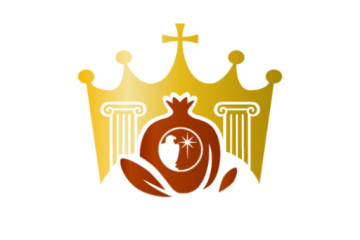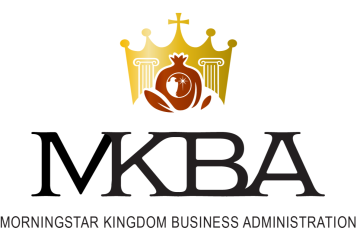OWEGO BUSINESS LUNCH BREAKOUT SEMINAR
Every prosperous period in the earth always involves the Lord.
Economy doesn’t begin on earth and then given into the kingdom Economy for the earth begins in heaven and then bestowed unto the earth John 15:5. Phil 4:6-8 Eph. 3:20 exceedingly…
My principles are from kingdom not from earth I am a business coach but my degree is KMBA. How the kingdom economy works for today it’s Is. 58 plus these NT scriptures. Rev 4:1 door her 33:3 places for promotion More scriptures
Isaiah 58 is a stock tip, word of wisdom and a business opportunity for creating wealth, transferring wealth and use of those earthly assets
📖 Theme of Isaiah 58
The central theme is true fasting and authentic devotion to God.
- God rebukes Israel for practicing outward religion (fasting, sackcloth, bowing their heads) while neglecting justice, mercy, and compassion.
- The Lord explains that the kind of “fast” He chooses is:
- Loosing the chains of injustice
- Setting the oppressed free
- Sharing bread with the hungry
- Providing shelter for the poor
- Clothing the naked
- Not turning away from one’s own family (Isaiah 58:6–7)
The promise follows: when people live this way, God’s light, healing, guidance, and provision break forth powerfully in their lives (Isaiah 58:8–12).
✝️ Application for a New Testament, Spirit-Filled Believer
For believers today, who are filled with the Spirit, Isaiah 58 remains a blueprint for authentic discipleship.
- Faith Expressed in Love
- Galatians 5:6 says, “The only thing that counts is faith expressing itself through love.” Isaiah 58’s call to care for the broken and oppressed is exactly how Spirit-filled faith is demonstrated.
- Life in the Spirit, Not Ritual
- The New Testament shows that the Spirit leads us into living service, not just religious forms. Just as Isaiah condemned hollow fasting, Paul warned of “a form of godliness but denying its power” (2 Tim. 3:5). True worship is a Spirit-empowered life that touches others with Christ’s compassion.
- Kingdom Living as Witness
- Jesus in Matthew 25 describes separating the sheep and goats based on acts of mercy: feeding the hungry, clothing the naked, visiting the imprisoned. These mirror Isaiah 58. For Spirit-filled believers today, these acts become not only good works but signs of the Kingdom of God breaking into the world through them.
- Empowered Compassion
- The Holy Spirit empowers believers with boldness, discernment, and spiritual gifts—but the fruit of those gifts must manifest in practical love. Isaiah 58 ties anointing to action: breakthrough and healing come as God’s people live outwardly in service.
- Living as Light in Darkness
- Isaiah 58:10 promises, “Your light will rise in the darkness.” Jesus echoed this: “You are the light of the world” (Matt. 5:14). Spirit-filled believers fulfill this prophecy by being light-bearers in workplaces, communities, and families.
🌱 Summary
Isaiah 58 calls God’s people away from superficial religion and into Spirit-empowered, justice-filled, compassionate living. For today’s believer, it is an invitation to let the Spirit transform fasting, prayer, and worship into acts of love that reveal Christ to the world.
When a New Testament believer embraces Isaiah 58, their devotion is no longer measured by ritual alone but by the overflow of the Spirit into servanthood, mercy, and Kingdom transformation.
🌿 Stewardship: How We Make and Use Money
Isaiah 58 redefines “true religion” in practical terms, which has direct implications for money and resources.
- Money as a Tool of Justice
- God rejects religious practices disconnected from justice. The “fast” He chooses is expressed in how we spend what He gives us—feeding, clothing, housing, and freeing others.
- A Spirit-filled steward sees money not just as personal gain but as Kingdom seed to break yokes of oppression.
- Earning with Integrity
- Isaiah 58 challenges self-serving systems. For believers today, stewardship means earning wealth righteously—with honesty, fairness, and excellence. “Ill-gotten gain” doesn’t glorify God, but stewarding wealth through just business practices does.
- Generosity as Worship
- Stewardship is not hoarding but flowing. Isaiah 58 links God’s blessing with generosity: “If you spend yourselves in behalf of the hungry…” (v.10). Spirit-filled stewardship means using money to advance God’s mercy and righteousness.
👑 Sonship: Living as Children of the King
Sonship shifts money from a transactional mindset to a relational and Kingdom-centered identity.
- Identity Before Activity
- Sons and daughters don’t strive to earn God’s favor through ritual (fasting for show). Instead, they rest in their Father’s love and then steward resources as an overflow of His heart.
- Representing the Father’s House
- In sonship, believers act as ambassadors of their Father’s Kingdom. Money is managed as if it belongs to the household of God, because it does. This aligns with Romans 8:17: “If children, then heirs—heirs of God and joint heirs with Christ.”
- Multiplication, Not Just Maintenance
- Sons don’t just preserve resources—they multiply them (parable of the minas, Luke 19). Isaiah 58 says our “light will rise in the darkness”—sons are called to expand God’s impact through wise use of money.
- Reflecting the Father’s Compassion
- Sonship means our use of money reflects God’s character: mercy, justice, generosity. Sons don’t exploit others to gain wealth; they redeem wealth to restore others.
🔑 Practical Application for Spirit-Filled Believers
- When you make money, do it as a steward of God’s gifts: use integrity, creativity, and diligence.
- When you use money, do it as a son or daughter of God: sow into people, freedom, and Kingdom justice.
- Stewardship asks, “Am I managing this resource wisely?”
- Sonship asks, “Am I reflecting my Father’s heart with this resource?”
✨ In summary:
Isaiah 58 teaches that stewardship without sonship leads to cold management of resources, while sonship without stewardship leads to immaturity and waste. Spirit-filled believers today are called to steward resources as Kingdom sons—earning wealth with integrity and using it as an extension of the Father’s love to transform lives.
Excellent—let’s weave together Isaiah 58, stewardship, sonship, and New Testament application into a daily declaration guide. This way it’s not just a study, but a way to live it out in work and business.
🌟 Isaiah 58 Stewardship & Sonship – Daily Declarations & Action Steps
✨ Personal Declarations
Speak these aloud to set your focus each day:
- “I am a son/daughter of the King, entrusted with resources to reflect my Father’s heart.”
- “I earn with integrity and I spend with generosity.”
- “I am a steward, not an owner—everything I manage belongs to God.”
- “My work brings freedom, justice, and light into the world.”
- “I use my money to redeem, not exploit—to restore, not oppress.”
- “My life is not ritual religion, but Spirit-filled compassion in action.”
📖 Wisdom from Proverbs for Stewardship & Sonship
- Proverbs 3:9–10 – “Honor the Lord with your wealth, with the firstfruits of all your crops; then your barns will be filled to overflowing.”
- Proverbs 11:24–25 – “One person gives freely, yet gains even more; another withholds unduly, but comes to poverty. A generous person will prosper; whoever refreshes others will be refreshed.”
- Proverbs 13:11 – “Dishonest money dwindles away, but whoever gathers money little by little makes it grow.”
- Proverbs 16:3 – “Commit to the Lord whatever you do, and He will establish your plans.”
- Proverbs 22:1 – “A good name is more desirable than great riches; to be esteemed is better than silver or gold.”
- Proverbs 28:27 – “Those who give to the poor will lack nothing, but those who close their eyes to them receive many curses.”
🛠️ Action Steps for Everyday Work Life
- Integrity in Earnings
- Make every business deal, sale, or contract reflect honesty and righteousness.
- Avoid shortcuts that compromise integrity.
- Generosity in Spending
- Budget for generosity—set aside part of your income to help those in need.
- Look for opportunities daily to refresh others.
- Justice in Influence
- Use your workplace influence to lift up, not tear down.
- Stand for fairness in hiring, pay, and treatment of people.
- Excellence in Stewardship
- Track and plan your finances with diligence.
- Ask: Am I multiplying what God has entrusted to me?
- Compassion in Leadership
- Care for employees, co-workers, and clients beyond transactions.
- Let your work culture reflect God’s family values.
- Daily Prayer for Guidance
- Begin each day with Proverbs 16:3: “Commit to the Lord whatever you do.”
- Ask the Holy Spirit: “How do You want me to steward Your resources today?”
🌱 Summary Thought
Isaiah 58 teaches that true devotion is not ritual but righteous action. Stewardship is the wise management of money and work, while sonship is living from the Father’s heart. Together, they shape how Spirit-filled believers earn, spend, and influence—turning every day at work into Kingdom impact.
FIRST NOTES
Isaiah 58 is one of the most striking prophetic chapters because it draws a sharp line between empty religious ritual and the life God actually desires from His people.
📖 Theme of Isaiah 58
The central theme is true fasting and authentic devotion to God.
- God rebukes Israel for practicing outward religion (fasting, sackcloth, bowing their heads) while neglecting justice, mercy, and compassion.
- The Lord explains that the kind of “fast” He chooses is:
- Loosing the chains of injustice
- Setting the oppressed free
- Sharing bread with the hungry
- Providing shelter for the poor
- Clothing the naked
- Not turning away from one’s own family (Isaiah 58:6–7)
The promise follows: when people live this way, God’s light, healing, guidance, and provision break forth powerfully in their lives (Isaiah 58:8–12).
✝️ Application for a New Testament, Spirit-Filled Believer
For believers today, who are filled with the Spirit, Isaiah 58 remains a blueprint for authentic discipleship.
- Faith Expressed in Love
- Galatians 5:6 says, “The only thing that counts is faith expressing itself through love.” Isaiah 58’s call to care for the broken and oppressed is exactly how Spirit-filled faith is demonstrated.
- Life in the Spirit, Not Ritual
- The New Testament shows that the Spirit leads us into living service, not just religious forms. Just as Isaiah condemned hollow fasting, Paul warned of “a form of godliness but denying its power” (2 Tim. 3:5). True worship is a Spirit-empowered life that touches others with Christ’s compassion.
- Kingdom Living as Witness
- Jesus in Matthew 25 describes separating the sheep and goats based on acts of mercy: feeding the hungry, clothing the naked, visiting the imprisoned. These mirror Isaiah 58. For Spirit-filled believers today, these acts become not only good works but signs of the Kingdom of God breaking into the world through them.
- Empowered Compassion
- The Holy Spirit empowers believers with boldness, discernment, and spiritual gifts—but the fruit of those gifts must manifest in practical love. Isaiah 58 ties anointing to action: breakthrough and healing come as God’s people live outwardly in service.
- Living as Light in Darkness
- Isaiah 58:10 promises, “Your light will rise in the darkness.” Jesus echoed this: “You are the light of the world” (Matt. 5:14). Spirit-filled believers fulfill this prophecy by being light-bearers in workplaces, communities, and families.
🌱 Summary
Isaiah 58 calls God’s people away from superficial religion and into Spirit-empowered, justice-filled, compassionate living. For today’s believer, it is an invitation to let the Spirit transform fasting, prayer, and worship into acts of love that reveal Christ to the world.
When a New Testament believer embraces Isaiah 58, their devotion is no longer measured by ritual alone but by the overflow of the Spirit into servanthood, mercy, and Kingdom transformation.
Great question. Isaiah 58 is not just about what we do with our time and compassion—it speaks directly to stewardship (how we manage what God entrusts to us) and sonship (living as mature children of God in His Kingdom). Here’s how it connects:
🌿 Stewardship: How We Make and Use Money
Isaiah 58 redefines “true religion” in practical terms, which has direct implications for money and resources.
- Money as a Tool of Justice
- God rejects religious practices disconnected from justice. The “fast” He chooses is expressed in how we spend what He gives us—feeding, clothing, housing, and freeing others.
- A Spirit-filled steward sees money not just as personal gain but as Kingdom seed to break yokes of oppression.
- Earning with Integrity
- Isaiah 58 challenges self-serving systems. For believers today, stewardship means earning wealth righteously—with honesty, fairness, and excellence. “Ill-gotten gain” doesn’t glorify God, but stewarding wealth through just business practices does.
- Generosity as Worship
- Stewardship is not hoarding but flowing. Isaiah 58 links God’s blessing with generosity: “If you spend yourselves in behalf of the hungry…” (v.10). Spirit-filled stewardship means using money to advance God’s mercy and righteousness.
🌟 Isaiah 58 Stewardship & Sonship – Daily Declarations & Action Steps
✨ Personal Declarations
Speak these aloud to set your focus each day:
- “I am a son/daughter of the King, entrusted with resources to reflect my Father’s heart.”
- “I earn with integrity and I spend with generosity.”
- “I am a steward, not an owner—everything I manage belongs to God.”
- “My work brings freedom, justice, and light into the world.”
- “I use my money to redeem, not exploit—to restore, not oppress.”
- “My life is not ritual religion, but Spirit-filled compassion in action.”
📖 Wisdom from Proverbs for Stewardship & Sonship
- Proverbs 3:9–10 – “Honor the Lord with your wealth, with the firstfruits of all your crops; then your barns will be filled to overflowing.”
- Proverbs 11:24–25 – “One person gives freely, yet gains even more; another withholds unduly, but comes to poverty. A generous person will prosper; whoever refreshes others will be refreshed.”
- Proverbs 13:11 – “Dishonest money dwindles away, but whoever gathers money little by little makes it grow.”
- Proverbs 16:3 – “Commit to the Lord whatever you do, and He will establish your plans.”
- Proverbs 22:1 – “A good name is more desirable than great riches; to be esteemed is better than silver or gold.”
- Proverbs 28:27 – “Those who give to the poor will lack nothing, but those who close their eyes to them receive many curses.”
🛠️ Action Steps for Everyday Work Life
- Integrity in Earnings
- Make every business deal, sale, or contract reflect honesty and righteousness.
- Avoid shortcuts that compromise integrity.
- Generosity in Spending
- Budget for generosity—set aside part of your income to help those in need.
- Look for opportunities daily to refresh others.
- Justice in Influence
- Use your workplace influence to lift up, not tear down.
- Stand for fairness in hiring, pay, and treatment of people.
- Excellence in Stewardship
- Track and plan your finances with diligence.
- Ask: Am I multiplying what God has entrusted to me?
- Compassion in Leadership
- Care for employees, co-workers, and clients beyond transactions.
- Let your work culture reflect God’s family values.
- Daily Prayer for Guidance
- Begin each day with Proverbs 16:3: “Commit to the Lord whatever you do.”
- Ask the Holy Spirit: “How do You want me to steward Your resources today?”
🌱 Summary Thought
Isaiah 58 teaches that true devotion is not ritual but righteous action. Stewardship is the wise management of money and work, while sonship is living from the Father’s heart. Together, they shape how Spirit-filled believers earn, spend, and influence—turning every day at work into Kingdom impact.
TEACHING SUMMARY ON IS. 58 FROM ECONOMIC VIEW
Perfect — I’ll compile all of this into a clean, structured teaching on Isaiah 58, weaving together your requested introduction, economic perspective, teaching points, summary, and practical applications. Here’s a polished version you can use for teaching, study, or handouts:
📖 Teaching on Isaiah 58: True Worship, Stewardship, and Sonship
✨ Introduction: Isaiah 58 in an Economic Light
Isaiah 58 is one of the most powerful prophetic chapters on the relationship between true worship, social justice, and economic stewardship. Written during a time of religious ritual without righteousness, the prophet exposes hypocrisy and calls God’s people to a fast that changes lives — not only their own, but also the poor, oppressed, and marginalized around them.
Economically, Isaiah 58 speaks directly to how we make money (integrity, justice, avoiding exploitation) and how we use money (generosity, compassion, and care for the vulnerable). It challenges both the ancient Israelite and today’s Spirit-filled believer to see finances not as private possessions but as Kingdom trust, meant to reflect the Father’s heart.
This chapter redefines “true religion”: it is not ritualistic fasting, but active love, justice, and stewardship. For a modern believer, this translates into economic discipleship—earning with integrity, spending with generosity, and managing resources as sons and daughters of God.
🔎 Outline of Isaiah 58
- Hollow Rituals Exposed (vv. 1–5)
- The people fasted and worshiped outwardly, yet continued in oppression and strife.
- They accused God of ignoring their devotions, but He saw through their hypocrisy.
- Lesson: God rejects worship that is disconnected from justice and compassion.
- The True Fast God Desires (vv. 6–7)
- Loosen the chains of injustice.
- Free the oppressed and break every yoke.
- Share food with the hungry, provide shelter for the homeless, clothe the naked.
- Lesson: True worship transforms society and addresses economic injustice.
- Promises of Restoration (vv. 8–12)
- Light will break forth like the dawn.
- Healing, guidance, provision, and answered prayer will follow.
- The faithful will be called Repairer of the Breach and Restorer of Streets to Dwell In.
- Lesson: When stewardship reflects God’s justice, blessings flow into individuals and communities.
- The Sabbath Restored (vv. 13–14)
- True Sabbath is delighting in the Lord, not pursuing self-interest.
- Honoring God’s day brings joy, dignity, and heritage in Him.
- Lesson: Rest and worship are central to stewardship — showing trust in God as Provider.
👑 Stewardship and Sonship Principles
Stewardship: How We Manage Resources
- Earning with integrity: rejecting exploitation or unjust profit (Prov 13:11).
- Using money as a tool of justice: meeting real needs, lifting burdens (Prov 11:25).
- Generosity as worship: giving reflects God’s mercy, not mere duty (Prov 3:9–10).
Sonship: Living as Children of the King
- Identity before activity: serving flows from being loved, not from religious striving (Rom 8:17).
- Multiplication, not maintenance: sons build and restore for generations (Isa 58:12).
- Reflecting the Father’s compassion: money is used redemptively, not selfishly.
🌿 Practical Applications
- Examine Your Worship
- Are your devotions paired with justice, mercy, and generosity?
- Practice Economic Integrity
- Earn honestly; refuse systems of exploitation.
- Engage in Social Justice
- Give, serve, and advocate for the hungry, homeless, and oppressed.
- Sanctify Time and Resources
- Honor Sabbath rest and commit daily work to God.
- Live as Sons, Not Servants
- Steward money as heirs of God’s Kingdom, not as anxious owners.
💡 Summary
Isaiah 58 confronts empty religion and calls believers to a lifestyle where worship and economics meet. True fasting is not about ritual deprivation but about justice, compassion, and stewardship. For Spirit-filled believers today, Isaiah 58 is a mandate to live as sons and stewards—earning with righteousness, using money with mercy, and reflecting the Father’s heart in all areas of life.
When we live this way, God promises light, healing, guidance, restoration, and joy. This is the Kingdom economy: worship expressed through justice, stewardship grounded in sonship, and blessing that overflows into generations.
👉 Would you like me to now format this into a professionally styled PDF teaching guide (with headings, Scriptures, application boxes, and reflection questions) so you can use it in workshops or church study groups?





